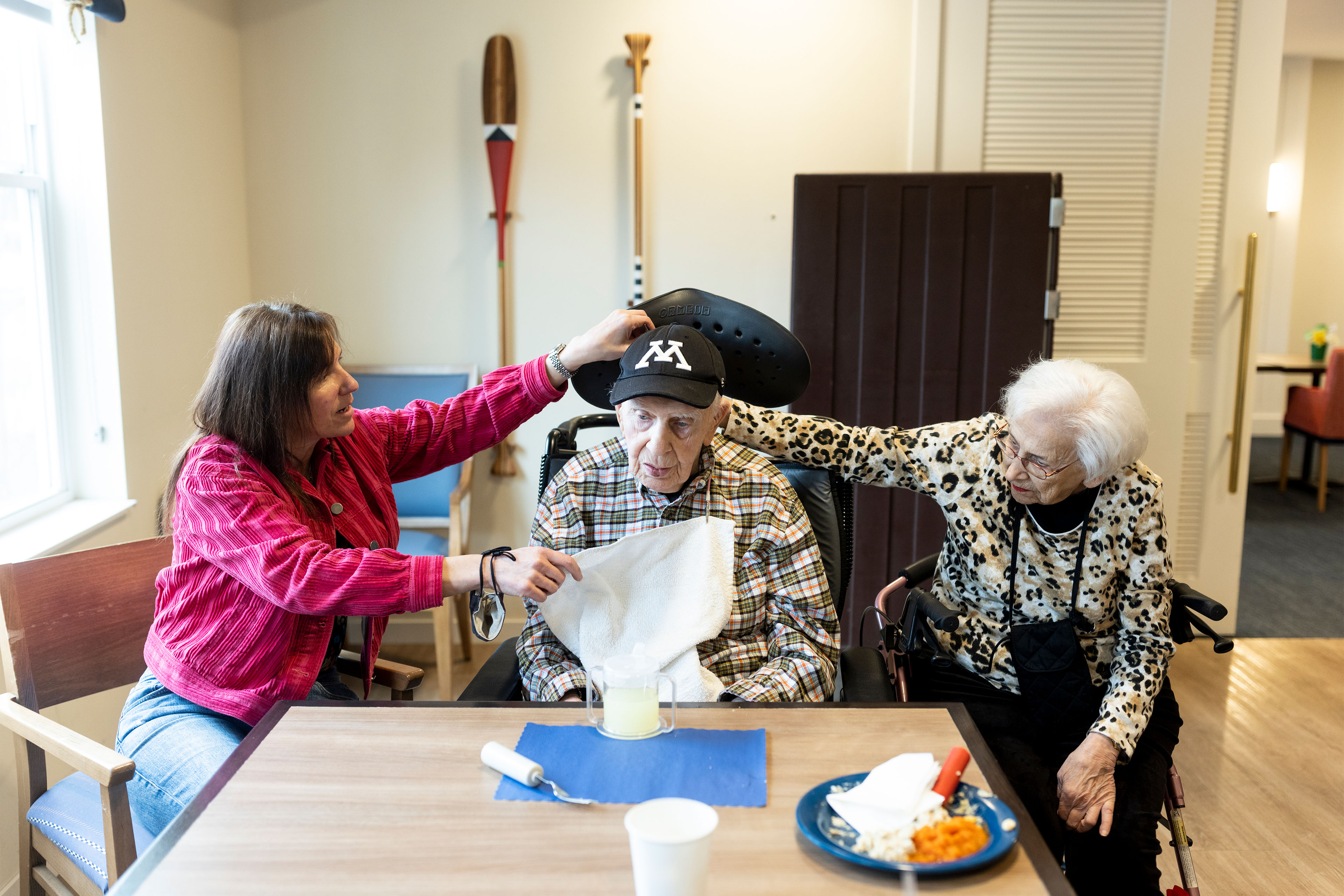Choose a highly rated Memory Care community focused on dignity and respect.
Choose a highly rated Memory Care community focused on dignity and respect.
Blog Article
How Assisted Living Facilities Enhance Top Quality of Life for Those With Mental deterioration
Helped living centers play a pivotal function in enhancing the lifestyle for people with dementia by implementing customized care strategies that satisfy their distinctive needs. These settings combine organized activities with emotional support, promoting a sense of community while making sure security and freedom. The combination of appealing programs and family members participation further improves the residents' experience. Yet, the complexities of mental deterioration care remain to evolve, triggering a more detailed assessment of how these facilities adjust and introduce to meet the difficulties encountered by homeowners and their family members. What ramifications does this have for future treatment designs?
Personalized Care Plans
(Dementia Care Charlotte)In lots of cases, individuals with dementia call for tailored assistance that resolves their distinct needs and choices. Customized treatment strategies are vital in assisted living settings, as they make certain that each resident receives ideal focus and solutions. These strategies are established collaboratively, entailing health care professionals, caretakers, and member of the family to produce a thorough overview of the person's case history, cognitive capabilities, and individual interests.
A well-structured personalized treatment plan normally includes particular goals connected to health monitoring, day-to-day activities, and social interaction. It represents the person's cognitive decline while advertising self-reliance and dignity. Normal assessments and updates to the care strategy are crucial, as they permit alterations based upon the citizen's developing problem and choices.
Key components of these strategies usually involve medicine monitoring, behavior support methods, and nutritional guidelines tailored to the individual's needs (Memory Care). By concentrating on customized treatment, aided living facilities can cultivate an encouraging setting that improves the quality of life for people with mental deterioration, ultimately adding to their general health and happiness. This individualized approach respects the originality of each citizen, guaranteeing they obtain the compassionate care they require

Involving Activities and Programs
Engaging homeowners in meaningful tasks and programs is vital for enhancing the lifestyle for individuals with mental deterioration. These activities not only provide satisfaction but likewise boost cognitive function and advertise social communication, which can mitigate feelings of isolation typically experienced by residents.

In addition, individualized programs are crucial in guaranteeing that each resident's distinct choices and abilities are acknowledged. This tailored strategy urges involvement, improves self-confidence, and gives a feeling of achievement.
Moreover, routine analyses of locals' passions can help staff modify and adapt activities to better suit advancing needs. By focusing on appealing activities and programs, assisted living facilities can considerably enhance the general experience and emotional health and wellness of people dealing with mental deterioration.
Safe and Supportive Setting
Creating a risk-free and encouraging setting is necessary for individuals with mental deterioration, as it directly impacts their wellness and high quality of life. Helped living centers are made with specific functions that advertise safety and security while cultivating a complacency and comfort. These environments focus on access, with formats that decrease complication and urge independence, enabling citizens to browse their environments extra conveniently.
Precaution, such as safe entrances and leaves, avoid straying and unapproved accessibility, which are vital factors to consider for individuals with mental deterioration (Memory Care). Employee are educated to recognize the one-of-a-kind requirements of citizens, providing customized support and guidance to guarantee their safety and security. The incorporation of soothing colors and acquainted items can help minimize anxiety and disorientation, developing a more soothing environment.
In enhancement to physical safety and security, emotional support is extremely important. Facilities commonly employ team that are not just competent in caregiving yet additionally trained in empathy and communication, promoting trust fund and connection with homeowners. This holistic technique adds to a nurturing setting where people really feel valued and comprehended, eventually enhancing their general high quality of life.
Social Communication and Neighborhood
A helpful setting not only prioritizes safety yet likewise fosters chances for social interaction and read the article area engagement, which are essential for individuals with dementia. In assisted living facilities, organized tasks and public rooms urge citizens to get in touch with one another, reducing sensations of isolation commonly experienced by those with cognitive disabilities.
Social interaction plays a substantial function in boosting emotional wellness and cognitive feature (Memory Care). Engaging with peers in group activities such as games, arts and crafts, or workout not only stimulates cognitive capabilities however also supports a feeling of belonging. Facilities typically organize occasions that advertise socializing, allowing residents to construct connections and share experiences, which can be especially helpful for those with dementia
Moreover, a dynamic community ambience can improve the total high quality of life for residents. Personnel participants are trained to help with communications and support homeowners in developing significant connections.
Family Participation and Support
Family involvement is important in supporting individuals with dementia in assisted living settings. Proactively engaging household members not only offers emotional convenience to locals yet also promotes a feeling of belonging and connection in their lives. When households join care preparation and day-to-day tasks, they contribute valuable insights regarding the person's choices, background, and requires, which can enhance individualized care.
Furthermore, routine family check outs can substantially enhance the psychological wellness of citizens, decreasing feelings of isolation and anxiety. Family participants can additionally assist in maintaining cognitive function by engaging their loved ones in acquainted discussions and tasks. This communication strengthens individual identity and helps citizens really feel valued and comprehended.

Final Thought
In verdict, aided living facilities significantly improve the quality of life for people with dementia with customized treatment plans, engaging tasks, and a risk-free atmosphere. These components foster cognitive stimulation, psychological health, and a sense of self-reliance. Furthermore, routine social communications and strong family involvement add to purposeful links and psychological assistance. Jointly, these elements develop an all natural strategy to care that addresses the special needs of individuals with dementia, promoting overall well-being and self-respect.
Report this page